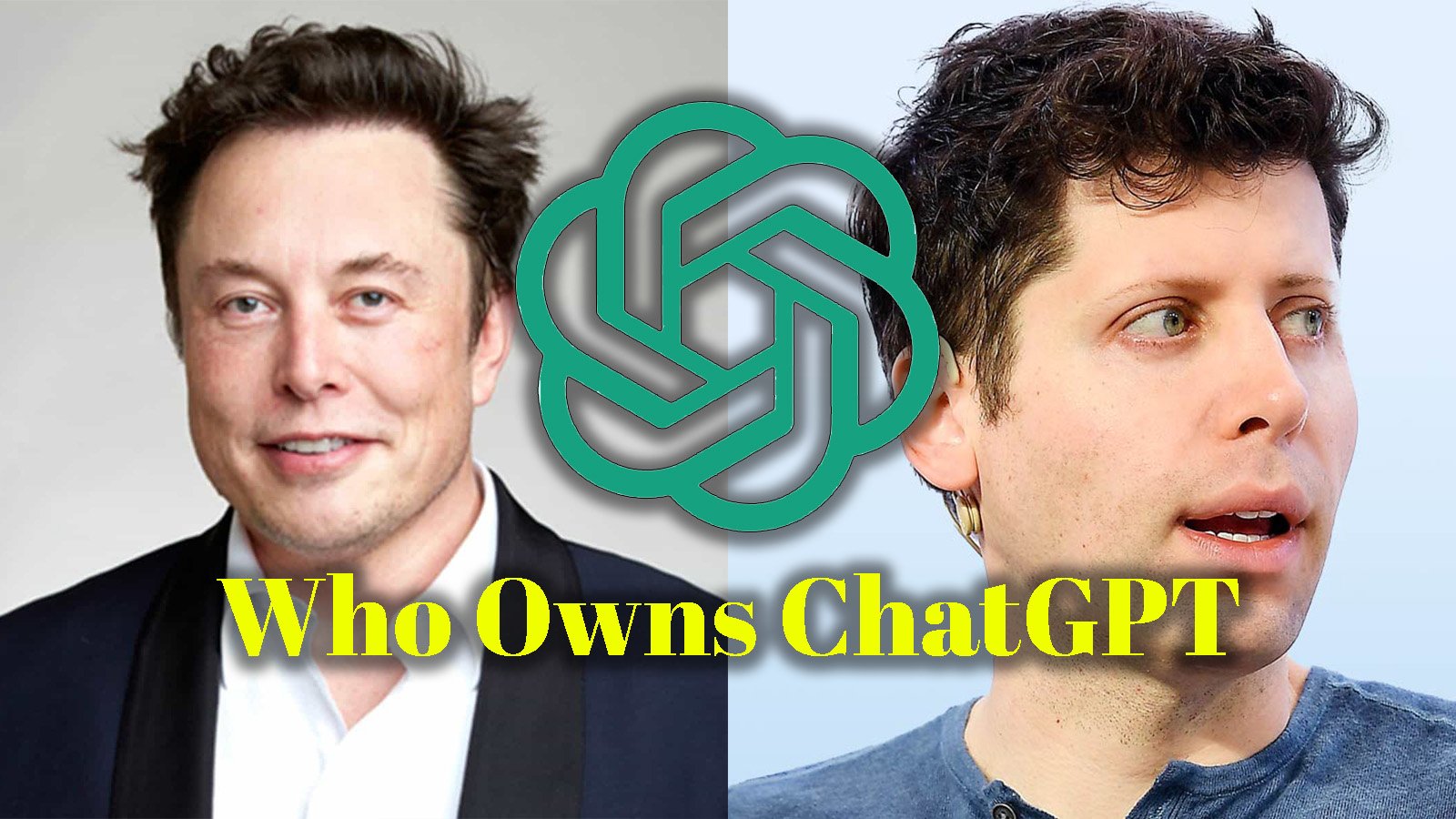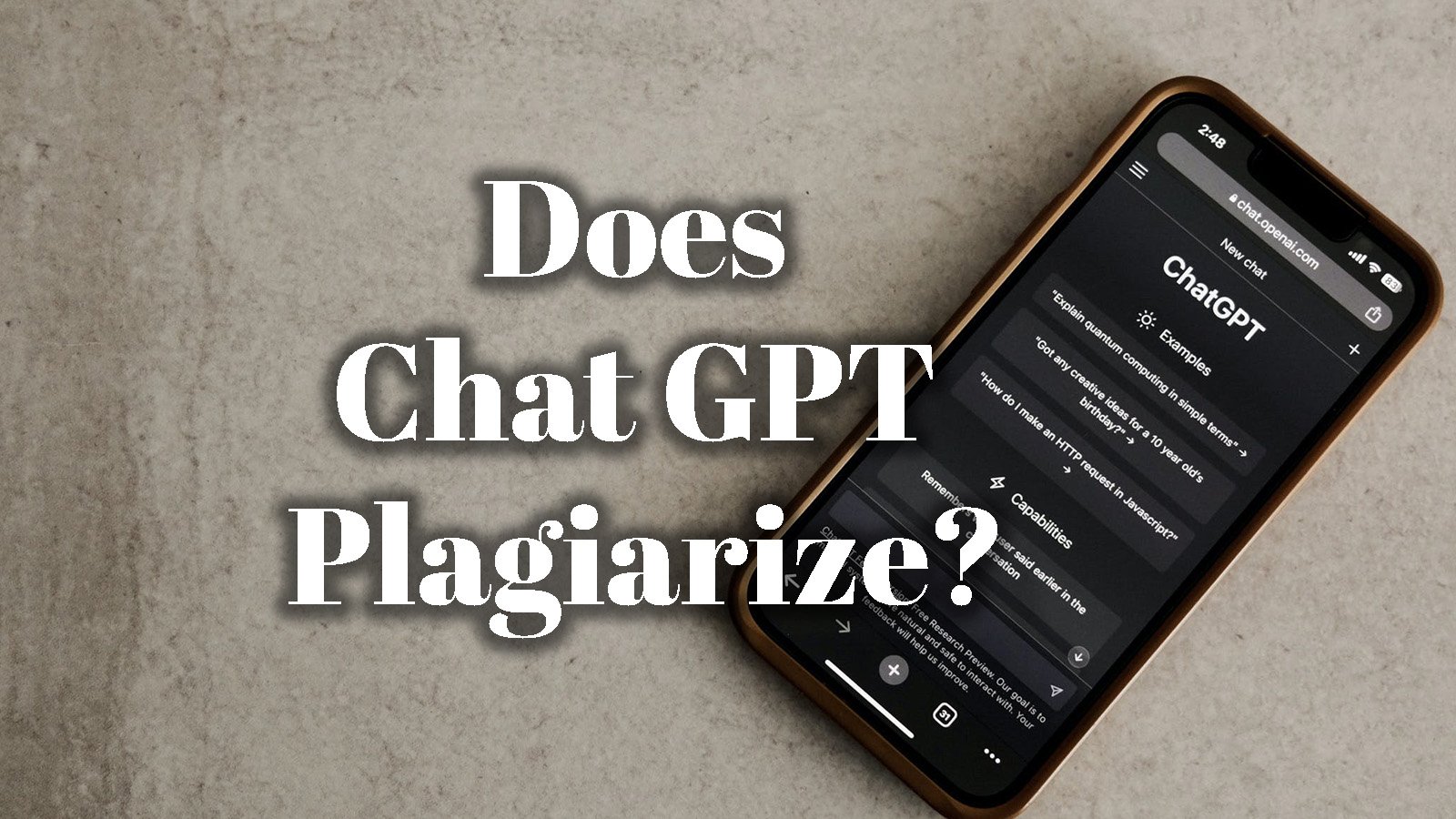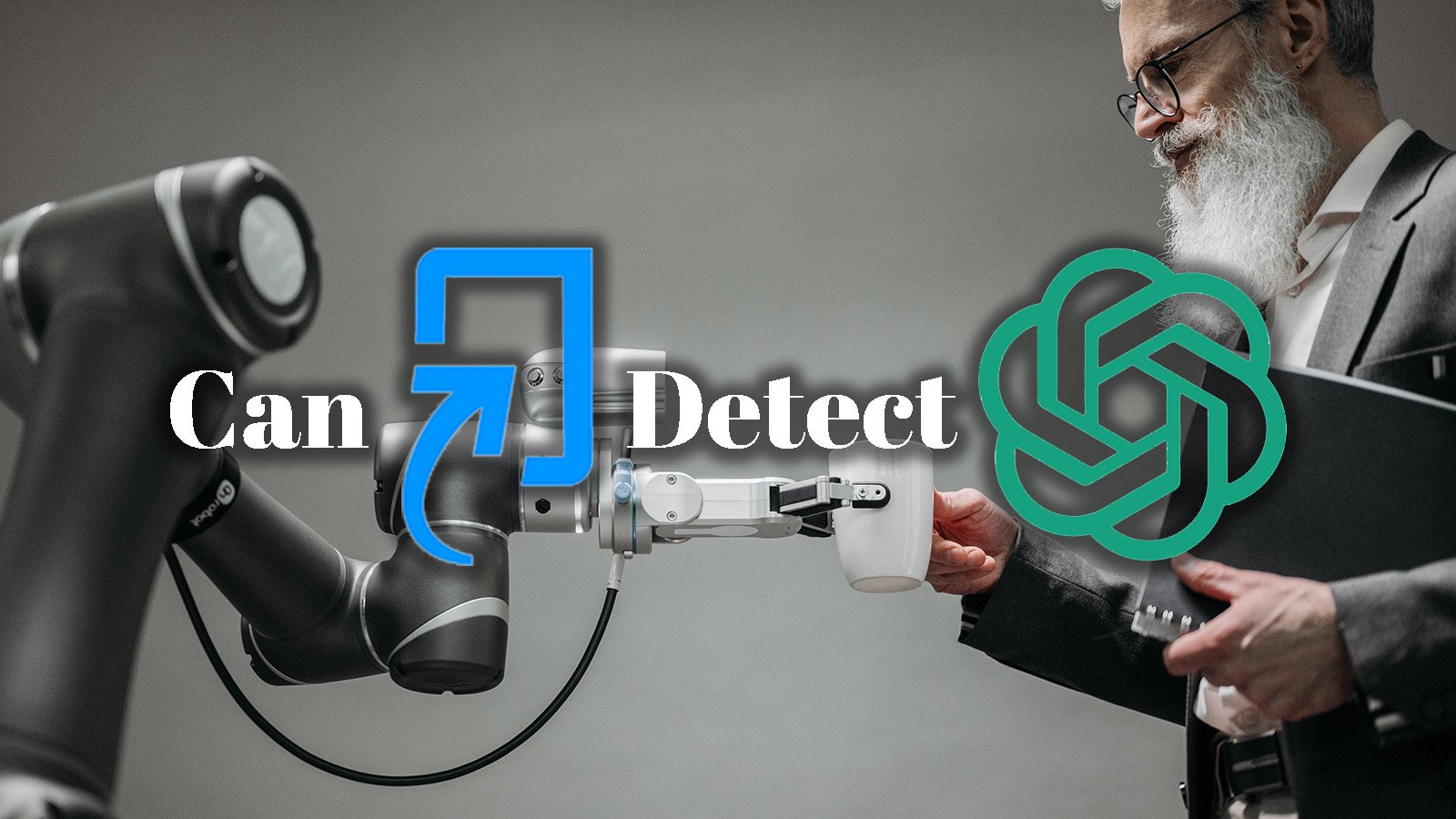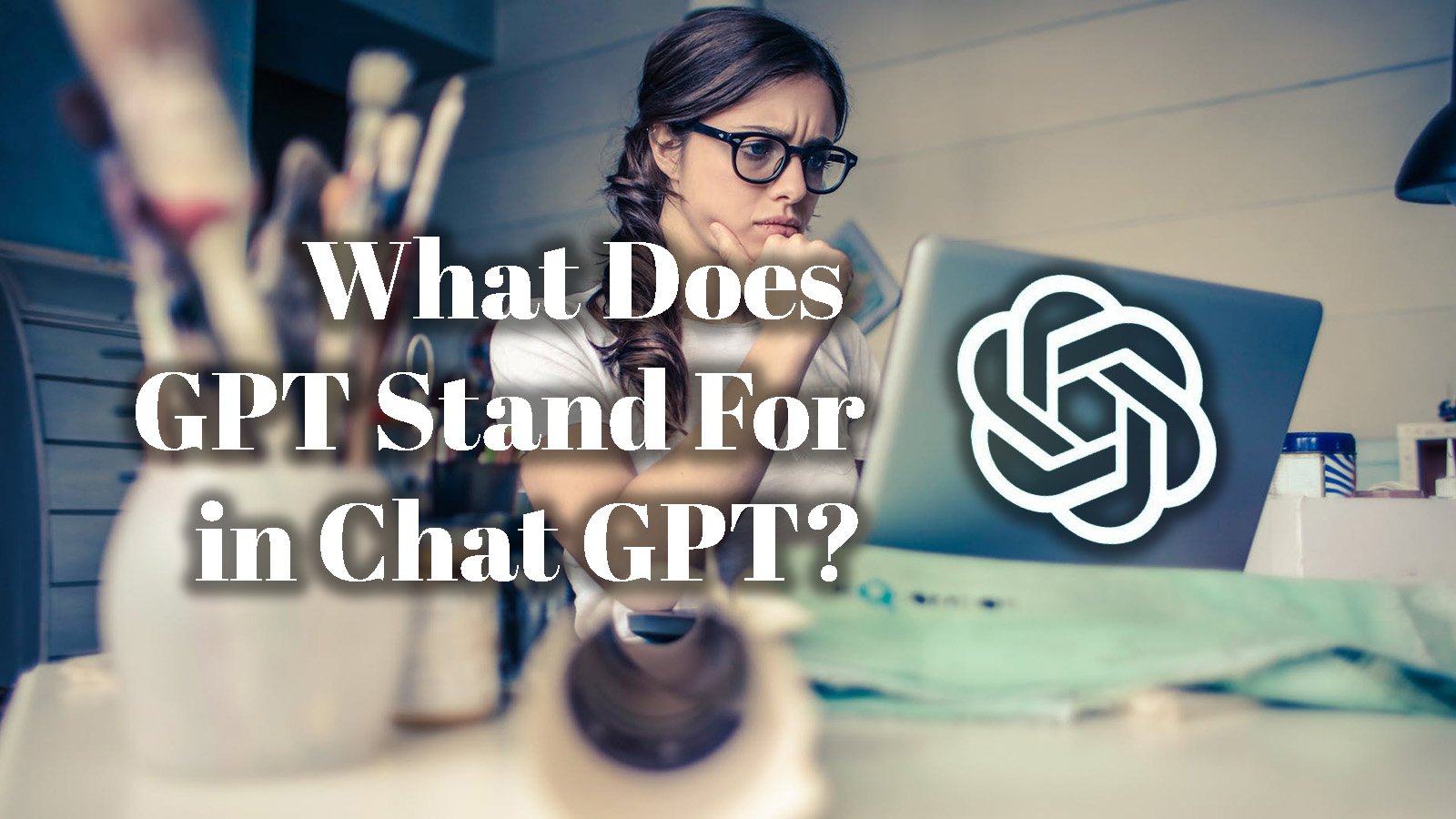Introducing the world of AI beginning with computer giant OpenAI! The story of Chat GPT and OpenAI is one characterized by tremendous innovation, ownership battles, and intrigue.
So who actually owns ChatGPT? As it turns out, this groundbreaking generative model which has been used in countless chatbot applications worldwide is owned by OpenAI – an artificial intelligence research company backed by Microsoft Investment.
Through this blog post, we explore how OpenAI came to own and develop the revolutionary technology behind Chat GPT as well as share their success stories and plans for future advancements.
Read along to find out why after five years since its appearance on the market, ChatGPT remains renowned as a powerful tool within Artificial Intelligence.
Table of contents
Who Owns Chat GPT?
OpenAI, a research laboratory founded by tech entrepreneurs including Elon Musk, Sam Altman, and other leaders from the industry, is the current owner of Chat GPT.
History and development of Chat GPT
ChatGPT is a language model created by OpenAI, one of the most groundbreaking companies in AI research. The history of ChatGPT dates back to the introduction of GPT (Generative Pre-trained Transformer), an open-source language model, in 2018.
It was developed by OpenAI researchers and released as part of the company’s broader mission to “advance digital intelligence in the way that is most likely beneficial to humanity.”.
Since then, ChatGPT has gone through several iterations and upgrades. In December 2020, using NVIDIA technology, OpenAI released GPT-2 (Larger Language Models), which featured significant improvements in accuracy compared to its predecessor – making it more accurate for producing longer texts with greater nuance.
Subsequent versions have continued refining those capabilities with advancements such as improved understanding and text generation powered by algorithms like Deep Learning and Natural language processing.
And now with ChatGPT plus coming up soon after Gpt`s 4th upgrade. We can expect even better things from this powerful tool!
OpenAI as the owner of Chat GPT
OpenAI is the leading company behind the development and ownership of Chat GPT, an advanced language-start chatbot created for text generation. Founded in 2015, Open AI is a research laboratory dedicated to creating human-level artificial intelligence safely and responsibly.
OpenAI’s founders include Sam Altman, Ilya Sutskever, Greg Brockman, Wojciech Zaremba, and Adam D’Angelo; however, it has since received additional financial backing from Tesla CEO Elon Musk as well as Microsoft Corporation which invested $1 billion into the lab at its 2018 inaugural launch.
The mission and goals set forth by OpenAI remain centered on producing groundbreaking technological advances that will benefit humanity with responsible use of artificial intelligence (AI) aimed to eventually result in general AI or AGI technology down the road.
Notable projects achieved thus far have included whistle-cycle learning models such as GPT-1 through GPT-4 within conversational AI applications used in summarization bots and question-answering tasks within natural language processing (NLP).
Related Article: What is AIPRM for ChatGPT Chrome Extension?
Founders and key figures of OpenAI
OpenAI, the technology firm created to explore and advance artificial intelligence, was founded in December 2015 by Sam Altman, Greg Brockman, Elon Musk, Ilya Sutskever, Wojciech Zaremba, and John Schulman. Sam Altman is still the company’s CEO.
What is OpenAI?
OpenAI is a research laboratory dedicated to advancing artificial intelligence capabilities that work in service of humanity and contribute to the long-term survival of humankind.
Mission and goals of the company
OpenAI, the company behind the chat generative pre-trained transformer (Chat GPT), is a research laboratory specializing in artificial intelligence technology.
Founded in 2015 by world-renowned experts Y Combinator president Sam Altman and world-renowned entrepreneur, investor, and philanthropist Reid Hoffman along with Ilya Sutskever, and Greg Bro Traveloer — the mission of OpenAI was originally to ensure that artificial general intelligence benefits all of humanity and does not harm them.
To achieve this goal, OpenAI started by trying to build a system that understood language from complete text sources such as Twitter or Reddit posts using Chat GPT which was their first version language model for dialogue applications.
The organization has engaged in various projects. These include efforts to develop human-level Artificial General Intelligence using two billion parameter models for tasks like summarization.
They’re also working on Integrated Systems, a brain-computer interface by OpenAI LP. Additionally, they’re involved in projects like Bard1 AlphaGo Zero for self-driving cars and the Foglio library, offering real-time protection against social engineering attacks.
DeepMind’s software architecture integrates with customer support services like Stripe Atlas API, enabling the integration of private patient records into cryptocurrency exchanges.
In 2018, they received investment funding. Microsoft also invested 1 billion USD in April 2019 with their assistance. Elon Musk left the Board in July 2020 due to safety disagreements related to AGI.
He was replaced, and there were developments regarding the FTC Act of 1910 and the US Privacy Policy. They released Android app APIs through GitHub Copilot and worked on Google Voice-Based Speech Recognition.
Notable projects and achievements
OpenAI has achieved some remarkable milestones since its inception, most notably in the development of AI technology and advancements. To get a better understanding of the company’s success story, here are some notable projects that OpenAI has undertaken or contributed to:
- GPT-3: OpenAI released GPT-3 in June 2020 to much fanfare, as it was the most advanced model ever created. Using tissue-like deep learning algorithms, GPT-3 is able to generate human-like text without any specific instructions. This makes it one of the first language models capable of generating creative and complex texts that can be used for various purposes, such as writing blog articles and constructing tweets.
- Text Summarization: OpenAI also developed an innovative system for text summarization, which enables people to automatically generate summary sentences about any given topic. The model accurately summarizes long documents into concise summaries in near real-time, which saves people considerable time when researching large volumes of material.
- Bing Chat: The team at OpenAI worked together with Microsoft on designing a chatbot named Bing Chat for users who use the Bing search engine. With this AI chatbot, users can find quick answers to their inquiries easily by entering queries in natural language instead of typing out exact keywords like they would have to do with conventional online searches.
- Federal Trade Commission (FTC) Act of 1914: Artificial intelligence experts at OpenAI built an automated system designed to assist reviewers from the US Federal Trade Commission (FTC) in identifying potentially deceptive ads or businesses before they become serious liabilities for regulatory authorities and consumers alike. The AI bot was trained using a corpus of hundreds of thousands of prior FTC enforcement actions and is now able to provide researchers with recommendations regarding potential violations during audits or investigations before they even begin their inquiry process.
- Virtual Assistants: OpenAI APIs (application programming interfaces) can help developers create virtual assistants for specific tasks ranging from playing music to retrieving information about stocks or wines – all with just voice commands given by users into their phones or web browsers on their computers or mobile devices. With these applications, OpenAI continues its pursuit of accessible artificial intelligence technology that allows everyday people to utilize the powers of AI without needing training in computer coding or deep learning algorithms themselves.
Relation to Chat GPT
ChatGPT has been an overwhelming success, owing much of its development and advancement to OpenAI, the company responsible for it. As a model employing Reinforcement Learning from Human Feedback (RLHF), ChatGPT is capable of generating human-like responses to prompts given by users.
This state-of-the-art technology is unique in that trainers use deep reinforcement learning on models used to generate text and dialogue, providing feedback for AI models so they evolve over time.
This technique was employed by members of the OpenAI organization who have dedicated their time and research efforts to creating ChatGPT—the most advanced form of artificial intelligence thus far.
Such developments have left many pondering what other possibilities exist when it comes to machine learning; indeed this has acted as the driver behind OpenAI’s mission as it furthers its capabilities and adversity in areas such as gaming bots or intelligent agents heavily influencing networks worldwide.
Related article: How To Use ChatGPT? Easy Guide To Use Chat GPT!
Ownership and Controversies
Dive into the controversies and ownership behind Chat GPT and OpenAI, including the involvement of tech mogul Elon Musk, Microsoft’s investment in OpenAI, and ethical considerations regarding AI control and bias.
Elon Musk and his involvement
Elon Musk has been a key figure in the development of artificial intelligence since the early days. He is best known for his involvement with OpenAI, an AI research and development company he helped establish in 2015 with two other investors.
OpenAI was founded to create technologies and machines that can augment human capability and augment humanity. In 2018, it released GPT-3 (Generalized Pre-trained Transformer 3), a powerful natural language processing system that enjoys widespread popularity among chatbot users today.
Musk’s presence at OpenAI declined as time went on until eventually resigning from the board completely in February 2018 citing parallel projects that take much of his focus, such as Tesla and SpaceX.
Surprisingly, Musk announced plans to form an AI conversation tool called “TruthGPT” after criticizing ChatGPT back when he still held shares in OpenAI but no longer owns any.
Most recently, Elon also founded xAI – another startup aimed at competing directly with Openeai’s products like ChatGPT – taking most of its capital from venture capitalist Peter Thiel who once equipped Musk’s early SpaceX projects.
Microsoft’s investment in OpenAI
OpenAI is a leading artificial intelligence (AI) research company formed in 2015, with the aim of democratizing and advancing AI technology for the benefit of humanity. OpenAI has been responsible for ground-breaking advances such as GPT-3 5.0, an innovative natural language processing model that can generate human-like text from context inputs.
It is no wonder then that Microsoft saw tremendous potential in forming a strategic partnership with this revolutionary startup–soon announcing its first investment of $1 billion to support the development of OpenAI’s technology.
In 2019, just one year later Microsoft increased their involvement tenfold by investing another $1 billion into OpenAI, aiming to better develop their cutting-edge tools and platform capabilities by utilizing their various resources, expertise, and talent–including hardware technologies such as GPUs provided by NVIDIA and Azure cloud services supplied by Microsoft itself.
This massive capital influx set off new waves in AI development across multiple industries — mobilizing investors to catch up or fall behind over worries about potentially missing out on an imminent boom in machine learning applications thanks to the propulsive effect caused by these investments –prompting fewer eligible firms remaining viable candidates for partnerships or acquisitions moving forward!
Criticisms and concerns about AI control and bias
AI systems are often only as unbiased and effective as the data they’re trained on, meaning AI models can carry over existing biases in data sets. If not addressed, these biases could lead to serious harm being inflicted on vulnerable populations.
For example, ChatGPT has been criticized for perpetuating racial and gender bias after reproducing stereotypes from training data in its text-generation system. This means that ChatGPT may produce words or phrases that become corrupted by flaws of certain pre-existing inputs such as race or gender assumptions – all embedded into a language algorithm that is later used by numerous people unaware of the implications behind it.
OpenAI CEO Sam Altman also expressed nervousness about the accuracy of human feedback raters when rating generated materials like stories or other content based on their familiarity with related topics or perceived impacts — this could introduce new categories of prejudice which would affect how an AI system learns further still.
Another area where OpenAI has come under fire is its domain-specific technologies; for instance, technology using geographic information systems (GIS) might possess (or even amplify!) existing geographical demographic inequality if sufficient attention isn’t given to local contexts and sensitivities during development stages – unfortunately GIS conflicts arise quite frequently within software programs like chatbots due to lack of awareness from developers.
Related article: ChatGPT Jailbreak Prompts Ultimate Guide 2023
Future of Chat GPT and OpenAI
As OpenAI continues to develop, both the impact and reach of Chat GPT have great potential, as its self-learning intelligence can be applied to improve decision-making in areas such as finance, healthcare, and consumer services.
Plans for GPT-4 and other advancements
OpenAI, the company behind ChatGPT, is leading the way in AI development. Earlier this year, OpenAI announced a GPT-4 basis – far more advanced than its predecessor, ChatGPT that has a complete point of view understanding and stage reasoning capabilities.
GTP-4 uses deep learning to comprehend language with greater accuracy and can generate stories up to 40 times as long as its predecessors. Not only does this advancement provide limitless possibilities for creative writing but it also allows developers to better tailor chatbot conversations with natural language processing capabilities.
Beyond creative potentials such as novel writing or songwriting, there are numerous practical implications of these advancements. For example, medical practitioners are already using NLP technology paired with advances in imaging segments and data collections allowing doctors to automate diagnosis through insights from patient records quicker than ever before possible.
Additionally, one key application involves Olympiad-related questions where students need a coherent critique of their performance by providing cause-effect analysis based on their approach to solving the question.
What\’s promising about GPTー5 is that new machine generations don’t necessarily have to continue progress at exponential rates; they could instead level off depending upon obtainable data.
Impact on industries and society
ChatGPT is shaking up how we use technology and influencing industries such as journalism, literature, and advertising. By providing new tools to generate content quickly and accurately, the AI language model is allowing these fields to create materials faster than ever before.
This shift has pushed them into a more competitive landscape, making it increasingly difficult for businesses to distinguish themselves from one another due to the sheer amount of available content.
In addition to generating content at an unprecedented speed and accuracy level, ChatGPT also introduces applications that mimic or simulate human behavior. This can be seen in virtual customer service assistants or automated conversation bots that are being used in customer relations departments across the globe.
The impact of this automation can be far-reaching; both positively – with improved communication efficiency – but also negatively by eliminating certain jobs or creating an artificial distance between customers and representatives when they are interacting on websites or through apps rather than personal contact with humans.
Lastly, ChatGPT’s capacity for churning out vast amounts of data presents new opportunities for industries like finance which rely heavily on market analysis over large populations of anonymized consumer data points – which was previously unfeasible at scale temperature at higher complexity levels.
Ethical considerations and precautions.
Using artificial intelligence and machine learning technology like ChatGPT comes with a host of considerations for users regarding ethical use. It is important for users to understand the potential legal, privacy, cybersecurity, bias, accountability, and fairness implications of their interactions with these technologies.
ChatGPT’s AI can be socially dangerous in the wrong hands if not used responsibly; it could lead to breaches of copyrights or other intellectual property claims, as well as improper access or manipulation of personal data.
Therefore, it is important that organizations implementing ChatGPT adhere carefully to Federal Trade Commission regulations outlined in the Federal Trade Commission Act of 1914 related to consumer protection and digital marketing practices such as automated content generation and proper disclosure requirements.
In addition to protecting privacy rights by keeping user data secure and anonymized from malicious actors who might access it inappropriately or exploit it for gain—users should also take into account the accuracy and reliability when using speech-to-text enabled capabilities created by ChatGPT in order to control its biases while providing reliable feedback on its outputs via fund managers or investment managers.
Conclusion
In conclusion, OpenAI and ChatGPT offer mankind the potential to create better use of resources, improve existing technology solutions, and ultimately benefit society at large. The development of this powerful AI model has already proven its immense capabilities in near-real-time scenarios such as conversational chatbot systems, and there is great potential for further advancements with GPT-4.
However, it is essential that the technology is developed responsibly with safeguards put into place against potential risks posed by bias or misuse. Recognizing the weighty implications of artificially intelligent systems like ChatGPT, OpenAI recently partnered with Microsoft to incorporate data governance measures and ethical standards into their project initiatives.
With continued investments from business giants to support ongoing projects such as GPT-4’s expansion into more versatile applications beyond natural language processing (NLP), there is no doubt that both OpenAI and ChatGPT will continue to shape the future landscape of AI technologies effectively and positively.
FAQs
1. Who owns OpenAI?
OpenAI is owned by its shareholders, OpenAI Inc. and OpenAI Limited Partnership, both of which are incorporated in Delaware, USA.
2. What is the influence of ChatGPT?
The GPT-3.5 model from ChatGPT has been highly influential within the Artificial Intelligence industry due to its ability to generate near-real-time usable output based on a few user inputs.
3. How does Nvidia impact the success of Open AI?
Nvidia provides financial and technological support for Open AI through their donations and contributions with cutting-edge GPUs that assist with training large machine learning models such as Chat Recycling GPT-3.5 or GPT-4.
4. Have any legal motions involving diseases been created using artificial intelligence?
Yes, recently some research teams used an Artificial Intelligence algorithm in an attempt to create a legal motion related to global diseases by generating arguments based on complex legal documents




 Explore Doodle Champion Island Games! Google Doodles Fun!
Explore Doodle Champion Island Games! Google Doodles Fun!